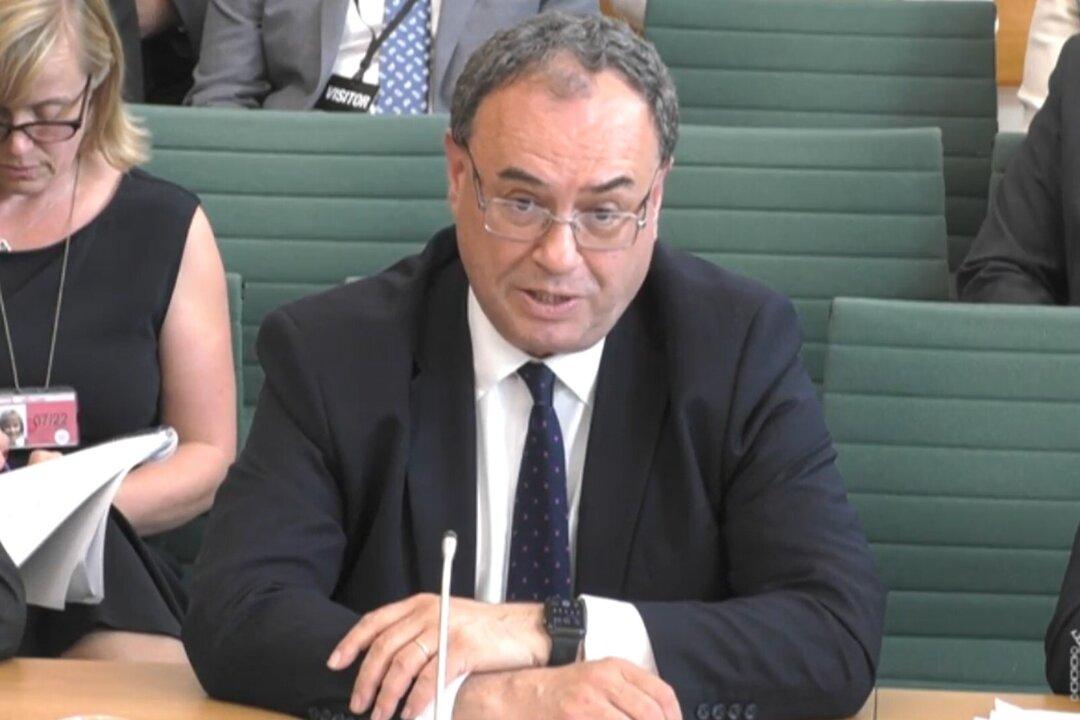The British pound dropped on June 15 to its lowest level against the U.S. dollar since March 2020. The plunge reflects concern about the widening gulf between interest rate policies at the Bank of England (BOE) and the Federal Reserve.
The European Central Bank also made a surprising move, with the announcement that it will deliver its first interest rate hike since 2011 next month.





